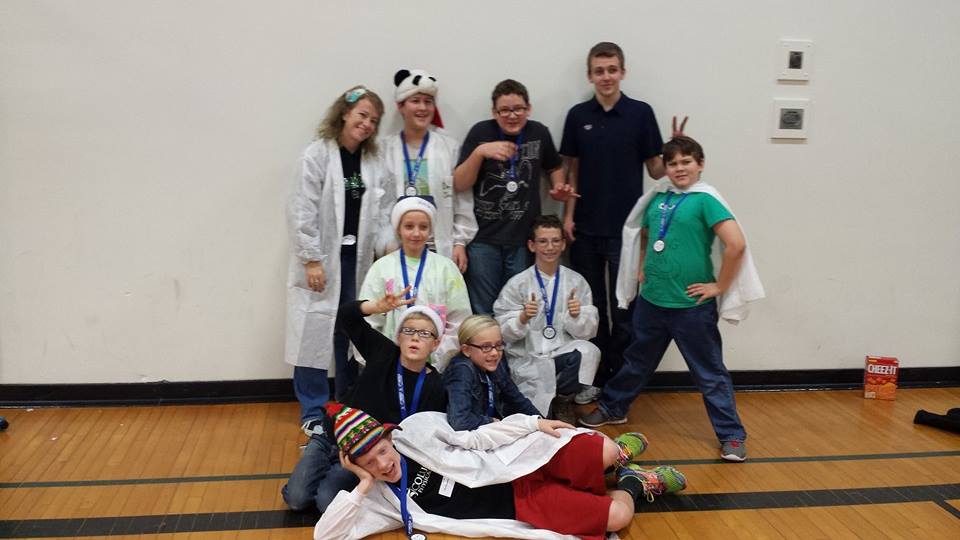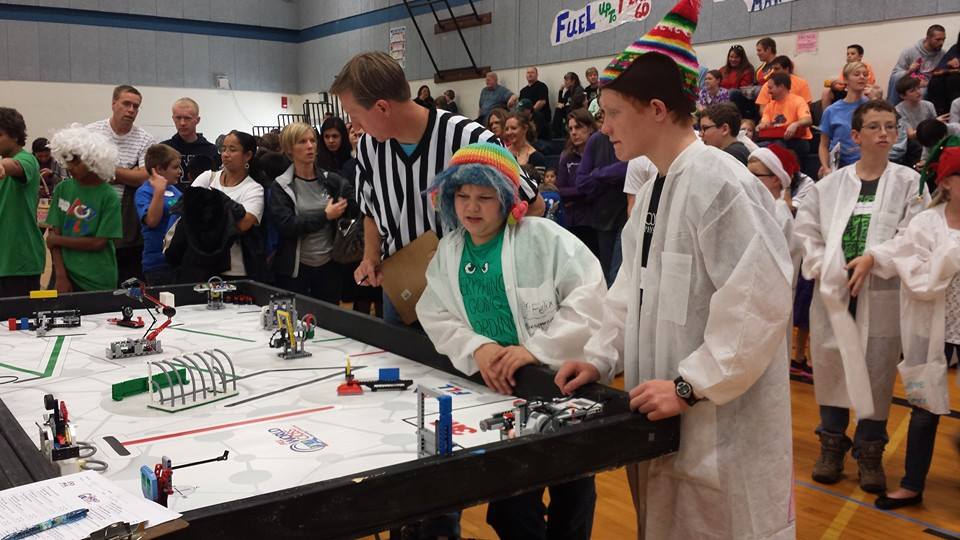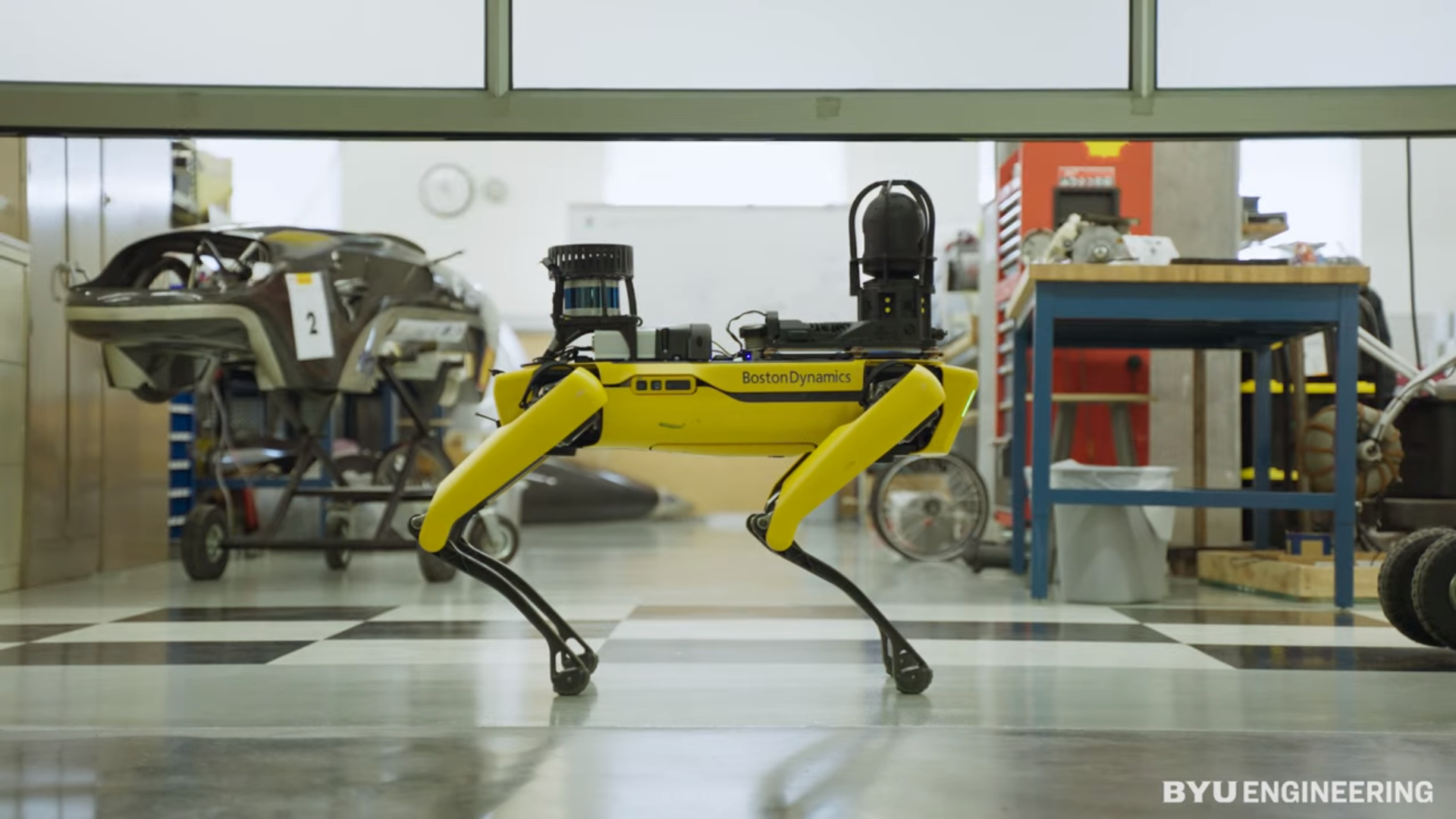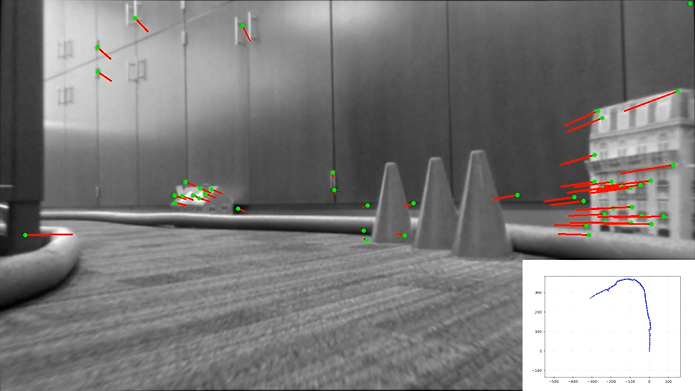First Lego League Team Coach
August 2014 - March 2015

Team photo after regionals. They decided to dress with a theme and wear funny hats and lab coats that we decorated the night before.
Overview
For my high school senior project, I decided to go above and beyond the project requirements and give
back to the community by organizing and coaching a First Lego League Team. Coaching a team of 8 kids
ages 9-14 was chaotic, but they came together and placed high enough in the regional competition to
make it to state semifinals. Reflecting back, coaching these kids is one of my fondest memories and
I cannot wait to coach again once I begin my professional career
*First Lego League is a competition similar to the First Robotics competition done by high schoolers
but aimed at younger kids. The robot, a Lego Mindstorms kit, must complete themed tasks, also made
of Lego, to score points before time runs out. In addition to the robot competition, the teams are
also tasked with researching and coming up with unique solutions with respect to the theme.
My Contributions
I built this team from the ground up. I pitched the idea with parents in my local church group,
younger siblings of friends and the friends of my younger sister to organize this team. I found a
parent willing to volunteer as an assistant coach who would assist from time to time and I
coordinated funding to purchase the robot along with the registration fee and general purpose
supplies.
To fulfil my responsibility as coach I held weekly meetings at my house for a couple hours where I
had the team work on different aspects of the project, including software and hardware of the robot
as well as the project presentation required by the rules, along with general team building
activities. It was important to me that everyone had an opportunity to work on each aspect of the
project regardless of skill level, I wanted to expose each team member to a different aspect of
engineering and ensure everyone had a turn with the robot. It was so rewarding introducing these
kids to a whole new aspect of STEM. Engineering became real to them, it was no longer solving math
equations in class as they had to design and solve problems together.
The first competition was super stressful for me, having worked so hard I wanted to make sure
everything went well, everyone had a good time, and that I didn't lose a kid. A friend who came to
support me said I was like a mother goose as I was herding all these kids from event to event
because honestly, those 9-14-year-olds needed some herding. I was so relieved when it was over and
by the state semifinals realized there was only so much I could control, so I sat back and enjoyed
the ride.
Besides all the fun of playing with a robot, coaching this team was just so much fun. From the
shenanigans to the inside jokes, letting our immaturity out a little was the best part. I can't
remember the theme of the competition, or most of the objectives, but I still remember the silly
songs they would sing and the ridiculous team name. The XYZandrewandoos, pronounced "X E
Zander-andoos", our teammate Andrew, managed to sneak his name into it without us noticing.

Team members waiting for the ref's signal to start the robot while the rest of the team, friends and family look on.
Things I Learned and Skills Developed
Probably the most important lesson I learned as a leader was
balancing hands on vs hands off coaching. I was constantly balancing helping and guiding to simply
letting them learn and develop on their own. In the beginning it was very hands on for me as I
worked to help establish a rythym and culture for the team while still being flexible to the needs
of the team. After advancing from regionals however, it was all them as they prepared to compete in
the state semifinals
Coaching such a young group provided it's own sense of difficulties, as a coach I needed to be more
hands on because of their immaturity, but I also won them over by playing along with a lot of their
games and antics. At the time I was only 4 years older then the oldest team member; although they
weren't my peers, I wasn't much older.


